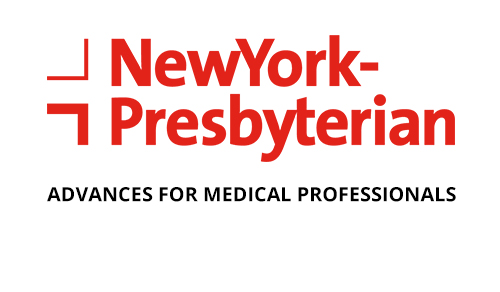A Focus on Faculty: Highlighting a Range of Expertise
Vincent F. Miccio, Jr., MD

Dr. Vincent F. Miccio, Jr.
Reading A World to Care for: The Autobiography of Howard A. Rusk, MD, during medical school was pivotal for Vincent F. Miccio, Jr., MD. “Dr. Rusk was considered the father of rehabilitation medicine,” says Dr. Miccio, a physiatrist who joined the Department of Rehabilitation Medicine at NewYork-Presbyterian/Weill Cornell Medical Center in August 2017. “The book was quite inspiring and pushed me to explore rehabilitation as a medical student. I found the specialty to be a hidden gem.”
After earning his medical degree at the University of Massachusetts Medical School, Dr. Miccio completed a residency in physical medicine and rehabilitation at NewYork-Presbyterian. There he served as Educational Chief Resident. He then went on to complete a fellowship in pain medicine at NewYork-Presbyterian/Columbia University Medical Center.
“I am a specialist in interventional pain medicine, but first and foremost, I am a rehabilitation physician,” says Dr. Miccio. “Just five years ago most physicians would be treating chronic pain with opioids. Today we are taking a multimodal approach with medications that target different receptors, targeted interventions and injections, and also emphasizing psychological support.”
“As the pendulum swings away from opioids, people are looking more into the realm of neuromodulation,” says Dr. Miccio, who also has expertise in neuromodulation therapy. “In the pain world, spinal cord stimulation is becoming more popular. The newest generation of stimulators have very good data and show promise in their ability to help patients who want to avoid using narcotic medications to control chronic pain.”
Dr. Miccio practices at the Weill Cornell Medicine Center for Comprehensive Spine Care, as well as at NewYork-Presbyterian Brooklyn Methodist Hospital, which is opening a new comprehensive spine center this fall. “At Brooklyn Methodist, I’m excited to work with specialists in orthopedic surgery, neurosurgery, neurology, rheumatology, podiatry, and psychiatry,” says Dr. Miccio. “Patients will receive all of the services they need under one roof and, in some cases, on the same day. My goal is to link up with the medical resources that we have in Manhattan without losing that community feel of Brooklyn Methodist.”
Asad R. Siddiqi, DO

Dr. Asad R. Siddiqi
Board certified in rehabilitation medicine and primary care sports medicine, Asad R. Siddiqi, DO, specializes in the compre-hensive management of acute and chronic sports injuries, concussion care, and injury prevention. “People tend to think about the high level athlete when they think about sports medicine, but there is so much more to the field,” says Dr. Siddiqi, a physiatrist in the Department of Rehabilitation and Regenerative Medicine at NewYork-Presbyterian/Columbia University Medical Center. “My personal philosophy was best expressed by legendary track and field coach, Bill Bowerman, who once said, ‘If you have a body, you are an athlete.’ I apply my skills to help all of my patients optimize not only their function, but their performance as well. Being able to help people maintain a high level of physical activity and mobility throughout their lives is very gratifying to me.”
While attending medical school at A.T. Still University of Health Sciences — School of Osteopathic Medicine in Arizona, Dr. Siddiqi cultivated an interest in sports medicine and functional optimization. During his residency in physical medicine and rehabilitation at New York University Langone’s Rusk Rehabilitation, he provided sideline and training room medical coverage for PSAL/CHSAA football, the New York City and Brooklyn marathons, the 2012 Ironman US Championships, LIU-Brooklyn Athletics, and St. Joseph’s College athletics. Dr. Siddiqi then pursued a fellowship in primary care sports medicine at the Steadman Hawkins Clinic of the Carolinas at Greenville Health System.
“A large majority of sports injury is nonsurgical in nature,” says Dr. Siddiqi. “I enjoy using all the tools at my disposal — physical therapy, medications, injections, and the expertise of my surgical colleagues — to get them back to living the best life possible. Most importantly, I love the privilege and challenge of joining them on the road to recovery in my role as a partner, coach, and resource.”
“Training in rehabilitation medicine taught me to look at injury through a functional lens. My sports medicine specialty training has rounded out my understanding of the injury continuum,” adds Dr. Siddiqi. “In our field we see a lot of the late effects of acute musculoskeletal complaints. By the time these individuals come to us, they are asking a question that may not have a simple answer. Whether my patient is a professional athlete or a person who lives for their weekly pickup game at the local recreation center, I just want to help them answer these questions and keep them moving.”
Related Publications

Columbia RunLab: Optimizing Performance and Preventing Injury

Research Update: Rehabilitation Robotics in Cerebral Palsy





